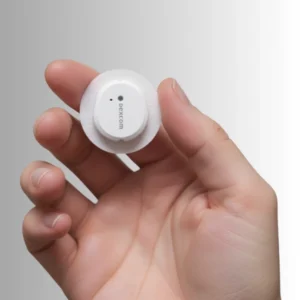Table of content
Living with diabetes goes beyond simply checking blood sugar levels—it involves understanding how your body reacts to daily stressors. Stress can have a powerful impact on blood glucose, making effective diabetes management more complicated. Thankfully, advances in technology, such as Continuous Glucose Monitoring (CGM) devices, empower people with diabetes to track glucose patterns in real time and take timely actions to maintain their health.
In this article, we’ll dive into the connection between stress and diabetes, share practical strategies for managing stress, and highlight how CGM devices can play a vital role in supporting your overall diabetes care.
How Stress Impacts Blood Sugar Levels in Diabetes
Whenever the body counteracts stress, it releases hormones (cortisol and adrenaline) that tell our liver to release glucose into the bloodstream, initiating the physiological “fight or flight” response to stress. The body was developed in this manner to improve the likelihood of survival in the presence of stress, but prolonged exposure to stress will lead to increased blood glucose from catabolic compulsion and stress accumulation and make management of diabetes even more difficult.
Those with Type 1 diabetes will have difficulty providing effective doses of insulin in situations where stress is present, and those with Type 2 diabetes will see increases in insulin resistance. Expectant mothers or those with gestational diabetes will see abnormal levels of glucose that affect both mothers and fetuses.
Stress-Related Symptoms in Diabetic Patients
Stress influences far more than glucose levels, it also has both physical and emotional effects. Some common stress-related symptoms associated with diabetes include:
- Increased irritability or anxiety
- Fatigue or low energy
- Poor concentration
- Increased blood pressure
- Unexplained glucose fluctuations
Ignoring these symptoms can lead to inconsistent glycemic control and increase the likelihood of complications like cardiovascular disease or difficulty managing weight. When diabetics recognize these warning signs early, they can choose to correct them through lifestyle changes, CGM monitoring (Dexcom G6/G7), or medical means.
Lifestyle Changes to Reduce Stress
Lifestyle modifications are fundamental to both diabetes management and stress reduction. Here are some strategies:
- Exercise and Physical Activity: Regular exercise helps lower stress hormones and improve insulin sensitivity. Activities such as walking, swimming, or yoga are particularly effective in reducing chronic stress while stabilizing glucose.
- Diet Management: A healthy diet for diabetics emphasizes whole grains, lean proteins, and stress-reducing foods like avocados and leafy greens. Limiting processed foods and simple sugars can prevent sudden spikes in glucose levels.
- Sleep Quality: Poor sleep increases cortisol levels and affects blood sugar regulation. Prioritising restful core sleep is a simple yet effective strategy for managing both stress and diabetes.
- Mindfulness and Meditation: Practices like meditation and deep breathing help lower anxiety and improve emotional well-being in diabetes, contributing to more stable blood sugar readings.
Constantly raised stress levels can cause constantly higher blood sugar levels, making diabetes and stress management difficult to handle.

Mental Health Strategies for Managing Diabetes Stress
To manage stress effectively, prioritizing mental health is key. Techniques to bolster psychological well-being include:
- Cognitive Behavioral Therapy (CBT): Assists individuals in recognizing and altering thought patterns that trigger stress.
- Counseling and Therapy: Professional support aids diabetics in handling anxiety or depression tied to blood sugar control.
- Support Groups: Engaging with others who have diabetes offers emotional backing and practical tips for dealing with stress-related glucose swings.
Pairing these strategies with CGM tracking forms a holistic approach to managing both mental health and diabetes.
Approaches to Support Stress Management
Medical interventions complement lifestyle changes to manage stress effectively in diabetes. To address stress-induced blood sugar fluctuations, consider:
- Insulin Therapy: Adjust insulin doses to counteract glucose spikes caused by stress.
- Oral Hypoglycemic Drugs: For Type 2 diabetes, these medications enhance insulin sensitivity to stabilize blood sugar.
- Regular Physician Check-Ups: Consistent monitoring by healthcare providers prevents stress-related complications and supports long-term health.
Combining these medical strategies with lifestyle and mental health practices promotes better glycemic control.
Tips to Stay Consistent with Diabetes and Stress Management
Consistency is key to successful diabetes and stress management. Practical tips include:
- Monitoring glucose trends daily with CGM devices like libre 2 Plus Sensor or Omnipod 5 insulin pump.
- Scheduling regular home exercise and mindfulness sessions
- Maintaining a balanced diet and proper hydration
- Seeking professional help when stress becomes overwhelming
- Combining lifestyle, mental health, and medical strategies for holistic care
These routines help ensure long-term blood sugar stability and improved overall health.
Conclusion
Life with diabetes requires a complete method that comprises not just medical treatment but also care for mental and emotional welfare. By understanding the link between stress and diabetes and adopting healthy management strategies, individuals can knowingly recover their value of life and better manage their form. Whether through relaxation techniques, regular exercise, or seeking social support, taking proactive steps toward stress management is important for lasting health and well-being when living with diabetes.
Frequently Asked Questions
Can stress impact my blood sugar?
Yes, stress hormones such as cortisol and adrenaline can increase glucose levels, affecting both Type 1 and Type 2 diabetes.
How can CGM devices help when stressed?
CGM devices provide real-time glucose levels, can detect spikes in glucose levels brought on by stress, and allow you to make quick adjustments.
What changes to my lifestyle can reduce stress for diabetics?
Exercise, mindfulness, meditation, good nutrition, and getting good sleep are all great stress-relievers.
Are meditation and yoga a real avenue for blood sugar control?
Yes. Meditation and yoga helps to decrease cortisol levels and stabilize blood glucose in a natural way.
Can I prevent diabetes complications by improving my mental health?
Yes, by decreasing stress levels and maintaining a healthy state of mind, you can stabilize your blood sugar levels and lower the risk of complications.














Write a comment
Your email address will not be published. All fields are required